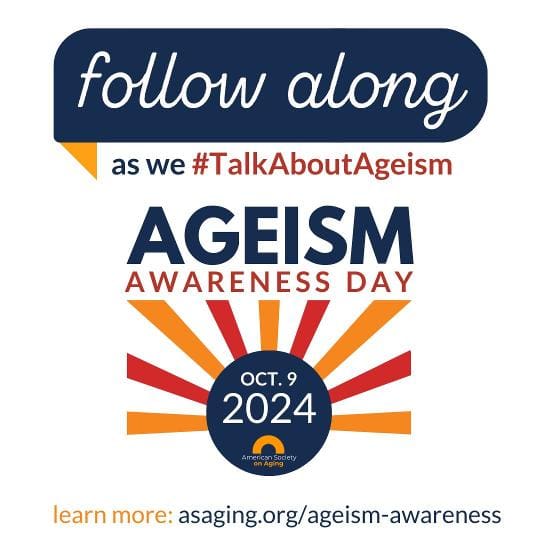Breaking the Age Barrier
In a world that celebrates diversity, one form of discrimination often flies under the radar: ageism. As we approach Ageism Awareness Day on October 9, 2024, it’s crucial to highlight this pervasive issue that affects people across all generations.
The Ripple Effects of Age-Based Discrimination
Ageism isn’t just about hurt feelings; its impact runs deep, affecting individuals and society in profound ways:
Health and Wellbeing at Stake: Research has consistently shown that experiencing age-based discrimination can take a toll on both mental and physical health. From increased stress and anxiety to lowered self-esteem, the psychological impact of ageism can cascade into physical health problems, creating a vicious cycle that diminishes the quality of life.
Workplace Woes: Ageism casts a long shadow in the professional sphere, particularly over older workers. Barriers to employment, limited training opportunities, and stunted career advancement not only affect individual livelihoods but also rob society of valuable expertise and perspective. The result? a less dynamic, less innovative workforce that fails to harness the power of multigenerational collaboration.
Stereotypes and Misconceptions: Perhaps most insidiously, ageism perpetuates harmful stereotypes about what it means to grow older. These misconceptions color our view of the aging process, potentially leading to self-fulfilling prophecies and missed opportunities for personal growth and societal contribution.
Turning the Tide: The Power of Awareness and Action
The good news? Ageism is not an immutable force. By raising awareness and taking concrete steps, we can create a more age-inclusive society:
Education is Key: Understanding the subtle ways ageism manifests in our daily lives is the first step toward change. From casual remarks to institutional policies, recognizing age-based discrimination is crucial.
Promote Intergenerational Connections: Breaking down age barriers through meaningful interactions between generations can dispel myths and foster mutual understanding and respect.
Challenge Policies and Practices: It’s essential to question and reform structures that perpetuate age-based discrimination, whether in the workplace, healthcare, or public policy.
Celebrate Age Diversity: Recognizing the unique contributions of individuals across all age groups can help shift societal attitudes towards a more inclusive perspective. I often work with corporations, training their workforce on how to use the experience and knowledge of older workers to help mentor the new and younger members of their workforce.
As we approach Ageism Awareness Day, let’s commit to creating a world where age is seen not as a limitation but as a valuable aspect of human diversity. By combating ageism, we’re not just improving individual lives; we’re building a stronger, more resilient society that values the contributions of all its members, regardless of their age.
The journey to an age-inclusive world starts with each of us. What step will you take today to challenge ageism and promote a society that respects and values people of all ages?

